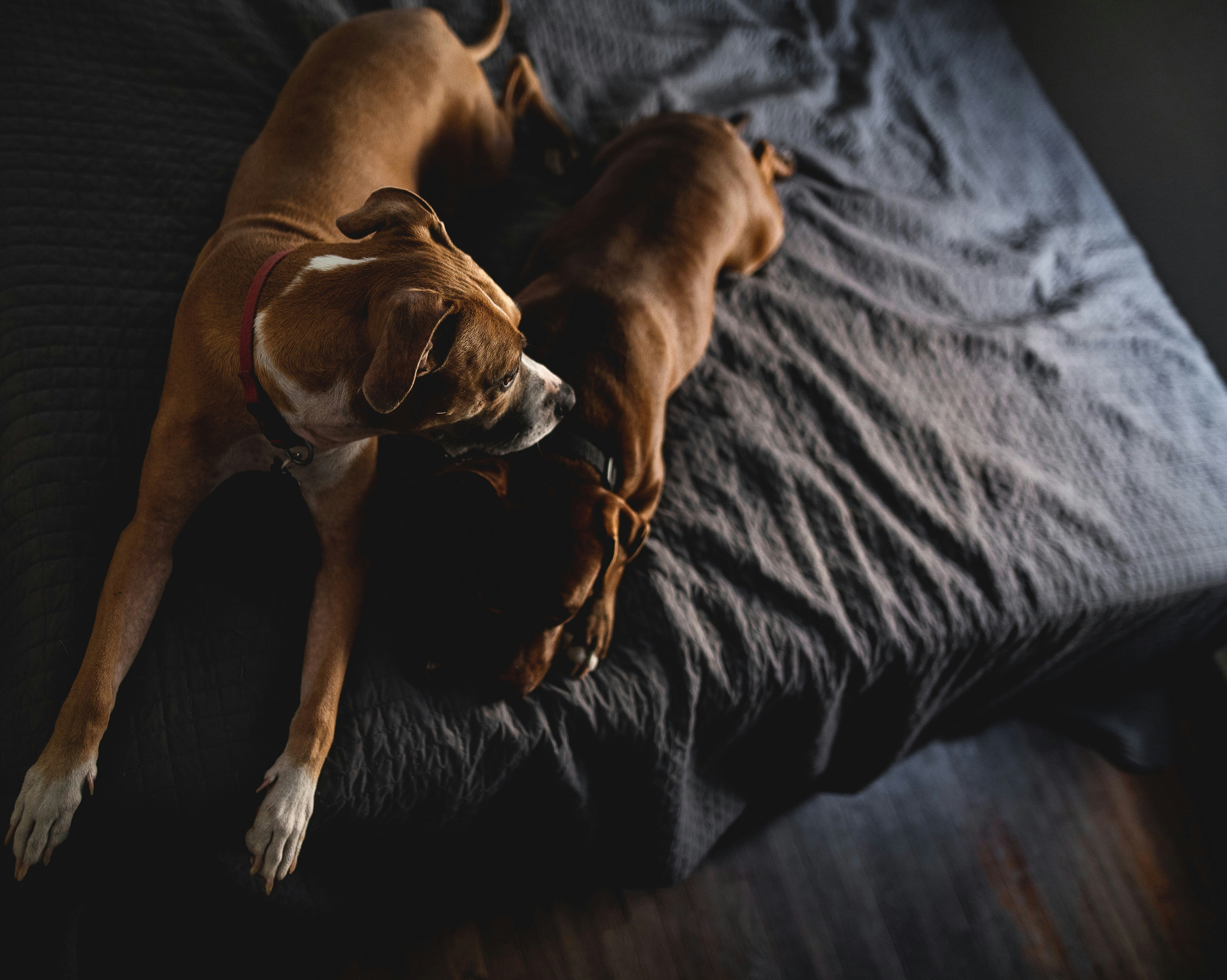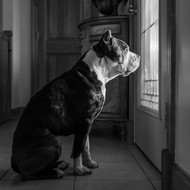Will Getting a Second Dog Help My Dog's Separation Anxiety?
Sep 3rd 2024
"My dog barks and cries when she's home alone. I have to go to work for about 4 hours, maybe four times a week. That’s the only time she’s alone. Will another dog help her so that she doesn't feel so lonely?"
As a pet blogger, I come across many dog owners who, like the person above, worry about their dog's separation anxiety when they are away at work. It’s a common issue that can be distressing for both dogs and their owners. The thought of leaving your furry family member alone, to bark, cry, or become visibly anxious for hours is enough to break any dog lover’s heart. One possible solution you can consider is getting a second dog. But is it the right choice for you and your dog?
Understanding Separation Anxiety in Dogs
Separation anxiety in dogs is a common, yet complex issue that many dog owners face. Some dogs are more prone to it due to their breed, temperament, or even past experiences. When left alone, these dogs may exhibit signs of distress such as barking, whining, chewing on furniture, or even having accidents in the house. It’s important to address these behaviors because they can indicate your dog is genuinely suffering.

Can a Second Dog Help With Separation Anxiety?
When this question was asked in my local dog owner group, many swore that getting a second dog helped ease their first dog’s anxiety. One owner, Sarah, shared that her dog, Ginger, fell in love with her new brother and they quickly became inseparable. The companionship of another dog can indeed be a powerful remedy. Having a friend to play with, cuddle with, and simply be around can significantly reduce a dog’s sense of loneliness.
Another dog parent echoed this sentiment, noting that their dog is much happier now that he has a sister. The two dogs keep each other company, which has reduced the anxious behaviors that once occurred when the first dog was left alone.
However, it’s essential to remember that not all dogs will react the same way. As one experienced vet in the group pointed out, the key is to choose a second dog with a calm and stable disposition. Otherwise, you could end up with two anxious dogs instead of just one. As a precaution, Behavioral Therapy might also be necessary to address the anxiety triggers of the first dog before introducing a new dog to the home. Each dog is different, and it is best to consult with your vet to address your dog's specific needs before making any changes to their environment.
The Importance of a Good Match
One of the most popular piece of advice from the group discussion was to ensure that the new dog is a good match for your current dog. For example, Ginger's owner Sarah noticed that she preferred to interact with other curly-haired dogs, like poodles. This may seem like a minor detail, but it could make a big difference in how well the two dogs bond.
Size and temperament are also important factors. Timmy, another dog owner in the group, shared how him and his wife successfully paired their anxious dog with a slightly older, well-behaved husky, leading to a marked improvement in their dog's anxiety levels. They cautioned however against getting breeds known for their anxious tendencies, like Pitbulls or Cane Corsos, as this could exacerbate the problem.
Another valuable advice was to consider adopting a middle-aged or senior dog. Older dogs often have more established personalities, making it easier to determine if they would be a calming influence on your anxious dog. Adopting from a rescue or foster home where the dog has been assessed for temperament is a great an easy way to do this.
Be Prepared For Some Setbacks
While many owners have found success in getting a second dog, it's important to acknowledge that its not always the case. One person in the group shared their experience of getting a second dog, only to have the younger dog pick up on the older dog’s anxious behaviors. They unfortunately now had to deal with two anxious dogs, and are considering hiring a trainer. This highlights the fact that getting another dog isn’t a guaranteed fix and may even complicate the situation.
The vet in the group also mentioned that the anxiety of the first dog could sometimes set off the second dog, leading to a situation where both dogs are anxious. Therefore, it’s crucial to be prepared for the possibility that bringing another dog into the home might not completely solve the problem.
You might also enjoy reading: Rehoming a dog with behavioral problems
Is Getting a Second Dog Right for You and Your Dog?
Deciding whether to get a second dog to help with your first dog’s separation anxiety is a personal decision that depends on several factors. It’s important to consider your dog’s temperament, the temperament of the new dog, and whether you’re prepared to invest time in a separation anxiety dog trainer if necessary.
If you do decide to get a second dog, take the time to find the right match. Consider visiting shelters, doing meet-and-greets, and maybe even opting for an older, more established dog who can be a calming influence. While it’s not a one-size-fits-all solution, the companionship of another dog could be just what your anxious pup needs to feel more secure when you’re not home.
At the end of the day, your dog’s happiness and well-being are what matters most. Whether that means bringing home a new furry friend or exploring other methods to reduce their anxiety, trust your instincts and do what feels right for you and your beloved pet.

